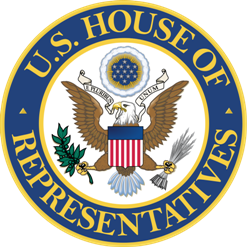Waiting Patiently for RI-01
The 259-day wait between U.S. House specials in 2023 is one of the longest in more than a quarter-century
 The resignation of Rhode Island Democratic U.S. Representative David Cicilline two months ago set the wheels in motion for what will be just the second U.S. House special election across the nation so far this year.
The resignation of Rhode Island Democratic U.S. Representative David Cicilline two months ago set the wheels in motion for what will be just the second U.S. House special election across the nation so far this year.
Primaries for Rhode Island’s 1st CD will be held on September 5th with voters picking a winner on November 7th – some 259 days since the last special election in the chamber was held on February 21st of this year when Jennifer McClellan held Virginia’s 4th CD for the Democrats.
Neither VA-04 nor RI-01 are competitive U.S. House districts, with Democrats winning each seat by approximately 30 points in last November’s general election.
But with the division of power so closely divided in the U.S. House (in which a five-seat swing would flip the chamber), the lack of specials this cycle – and the long space in between specials in particular – has done little to feed the appetite of election observers or get a pulse of the electorate nationwide.
In fact, the 259-day span between VA-04 and RI-01 is one of the longest in the U.S. House during the 21st Century.
There have been 111 specials conducted since 2000 and the average span between them was only 77 days – averaging one special every two and one-half months.
And there have only been three other periods with longer waits between U.S. House specials since 1996:
- 546 days between the last special election of the 20th Century (won by Democrat Joe Baca in CD-42 on November 16, 1999) and the first of the 21st Century (won by Republican Bill Shuster in PA-09 on May 15, 2001)
- 326 days between Oklahoma Republican John Sullivan’s 1st CD win on January 8, 2002 and Hawaii Democrat Ed Case’s 2nd CD victory on November 30, 2002
- 271 days between Illinois Republican Darin LaHood’s 18th CD victory on September 10, 2015 and Ohio Republican Warren Davidson’s 8th CD win on June 7, 2016
There was also an identical 259-day wait between Texas Republican Randy Neugebauer’s win in TX-19 on June 3, 2003 and Kentucky Democrat Ben Chandler’s 6th CD pick-up on February 17, 2004.
Rhode Island had not held a special election since March 28, 1967 – soon ending one of the nation’s longest such droughts of 56+ years.
Only Idaho (no specials), Delaware (1900), New Hampshire (1932), Maine (1951), Iowa (1959), and North Dakota (1963) have had longer droughts between special elections.
During the last year Nebraska (1951), Alaska (1973), and Minnesota (1977) each held their first specials to the chamber for the first time in several decades.
Follow Smart Politics on Twitter.

ID might have held a special in 1934 following the death of first-term Democrat Thomas Chalkley Coffin of the ‘eastern, then-non-Boise’ district (the vacancy occurred in June, providing sufficient time for a special election at least to be held concurrently with the general later in the year).
I for one would have categorized any special elections that would have taken place during the Year 2000 as the LAST ones of the Twentieth Century!
Indeed, for some reason, Idaho did not hold an election to fill the vacancy for the remainder of Rep. Coffin’s term. It is perhaps not a coincidence that the duration of the 73rd Congress (Mar 1933-Jan 1935) was cut short due to the 74th starting on January 3, 1935. Idahoans evidently did not feel a special was warranted and had to wait just two months to have their full slate of US Reps sworn into office as opposed to four months under the old calendar.
Wait, ID has never had us house special election? That’s impressive.
And Nevada did not have its first U.S. House special until 2011 after Dean Heller became U.S. Senator. https://smartpolitics.lib.umn.edu/2011/04/29/idaho-soon-to-be-only-state-ne/
McClellan’s swearing-in on March 7 marked the first time since Sept. 23, 2019 that no seat in the U.S. House was vacant. This lasted less than three months before Cicilline resigned on May 31.
[In 2019, North Carolina held two special elections on Sept. 10, with the winners seated on Sept. 17, thus bringing the House to its full 435 members for just six days until Sean Duffy resigned on Sept. 23.]
The last time the House went more than three months without a vacancy was the same instance as the other 259-day wait between special elections mentioned in the article; namely, between Neugebauer taking office on June 3, 2003 and Ernie Fletcher resigning on Dec. 8, 2003. [Fletcher had defeated Chandler for governor, and Chandler would go on to win the special election for Fletcher’s House seat.]